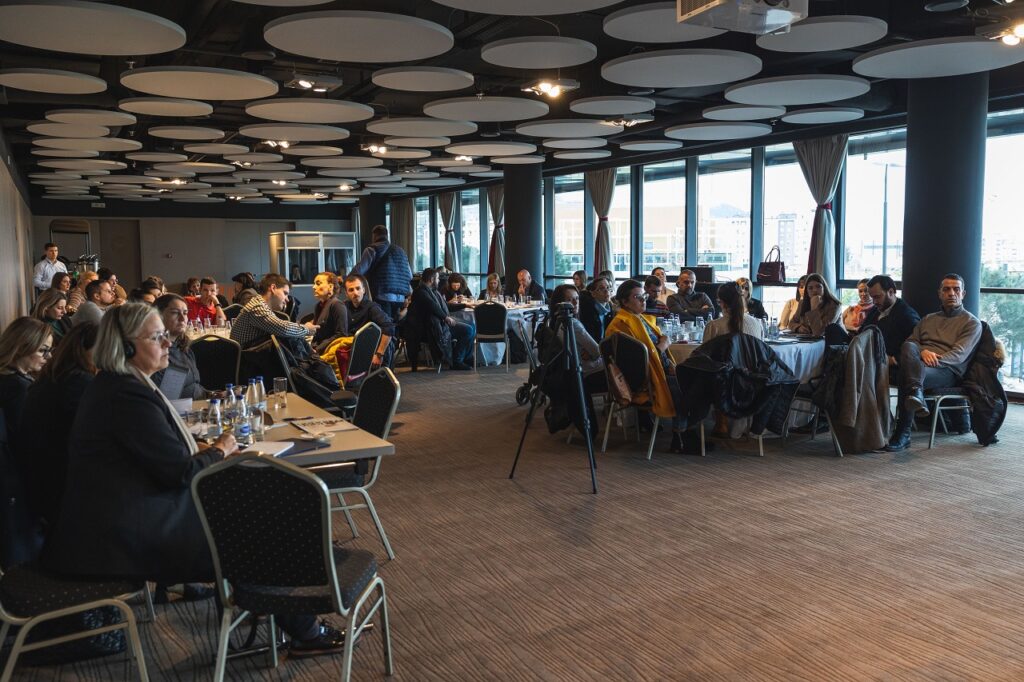Within the working part of the “Voice of civil society in advocacy for change” forum, which was recently organized by the Centre for Civic Education (CCE), participants from the civil sector and institutions formulated recommendations for the areas of gender equality, youth and youth policies, vulnerable and marginalized groups, as well as ecology and sustainable development. The situation in these areas requires a multidimensional and systemic approach, and the absence of support from the Government reflected on numerous services provided by non-governmental organizations, which is why a more organized advocacy approach is needed, it was assessed at the meeting.
One group dealt with the analysis of problems and modalities of improvement in the field of gender equality through four areas – gender mainstreaming in public policies; influence on public policies through cooperation and partnership; access to project financing and other types of support for strengthening the capacity of CSOs from domestic and international funds; sustainability of support services for women with experience of gender-based violence. “Unfortunately, we have gone back decades, because the current policy of state authorities excludes the measures and activities of the gender component from the action plans, and places everything related to the issue of gender-based violence in the strategy for implementing the Istanbul Convention. It is worrying that gender-based violence is not recognized even in important ministries, whose bodies are obliged to deal with this issue, above all in the Ministry of Justice, the Ministry of Interior and the Ministry of Health“, underlined Biljana Zeković, director of the SOS Phone for women and child victims violence Podgorica, which moderated the work of this group. She also pointed to the limited work of the Committee for Gender Equality, as well as the underdeveloped capacities of the Ministry of Human and Minority Rights in this area. Zeković reported that the discussion also identified the demotivation of CSOs to participate in working groups for drafting legislation, then the dwindling funds that institutions invest in the development of gender policies and the fight against gender-based violence, their uneven regional distribution and doubts about the independence of evaluators. Some of the key recommendations of this group refer to the need to include in the budget all licensed social services through multi-year financing programmes, but also to work on supporting those organizations that have extensive experience in licensing their services, then on establishing clear criteria for obtaining funds in terms of assessment of experience, quality and continuity in work and improvement of the method of selection and independent assessors. The recommendation to international donors is to have the issue of gender equality as a separate programme line, and to NGOs themselves to be more active through participation in intersectoral working bodies in this area.
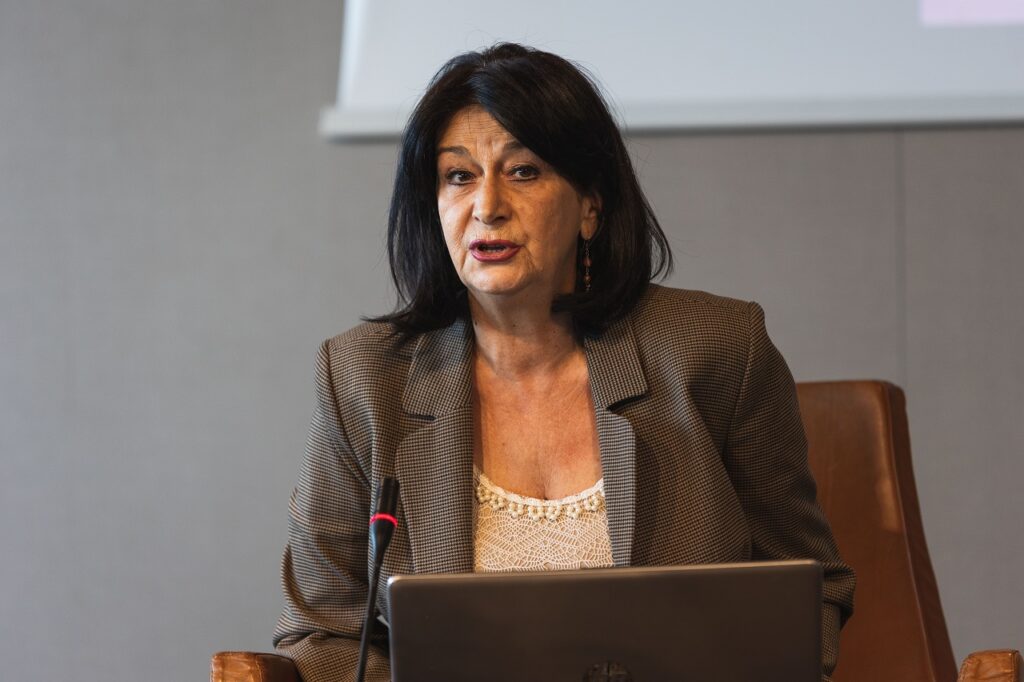
Miloš Marković, president of the Managing Bord of the Network for the Youth of Montenegro, moderated the group that analyzed and mapped recommendations related to youth and youth policies through challenges identified in the institutional part, but also in the influence of young people on decision-making processes, as well as their position through several segments – volunteerism, mental health, civic education, entrepreneurship. “We do not consider the institutional solution and the issue of youth to be the responsibility of only one ministry, noting that the lack of institutional communication and synchronization in issues is also visible and that affect young people. We need a new National Strategy for Youth, as well as amendments to the Law on Youth, as well as the Law on Volunteerism,” explained Marković. He pointed to the importance of education and the necessity of introducing a compulsory subject of civic education in upper grades of elementary school and all grades of secondary schools, through which young people would learn about human rights and acquire knowledge and skills for an active approach to the community. “When it comes to volunteering, the lack of appreciation of that experience is often cited by young people as the key reason for their lack of motivation to volunteer. On the other hand, there is no support or incentive measures for young entrepreneurs and that needs to change,” said Marković. On the sensitive position of young people in society and the problem of suicide, to which experts have been warning for a long time, Montenegro has not yet responded with a national prevention programme. “The high rate of suicides has been noted for years, which indicates that we are not dealing with this problem in the right way. That is why we see the introduction of psychological consultations in schools as one of the activities that should be considered as soon as possible“, concluded Marković. Also, this group emphasized the importance of supporting young creators of culture and media content, so that they could develop in that area as well.
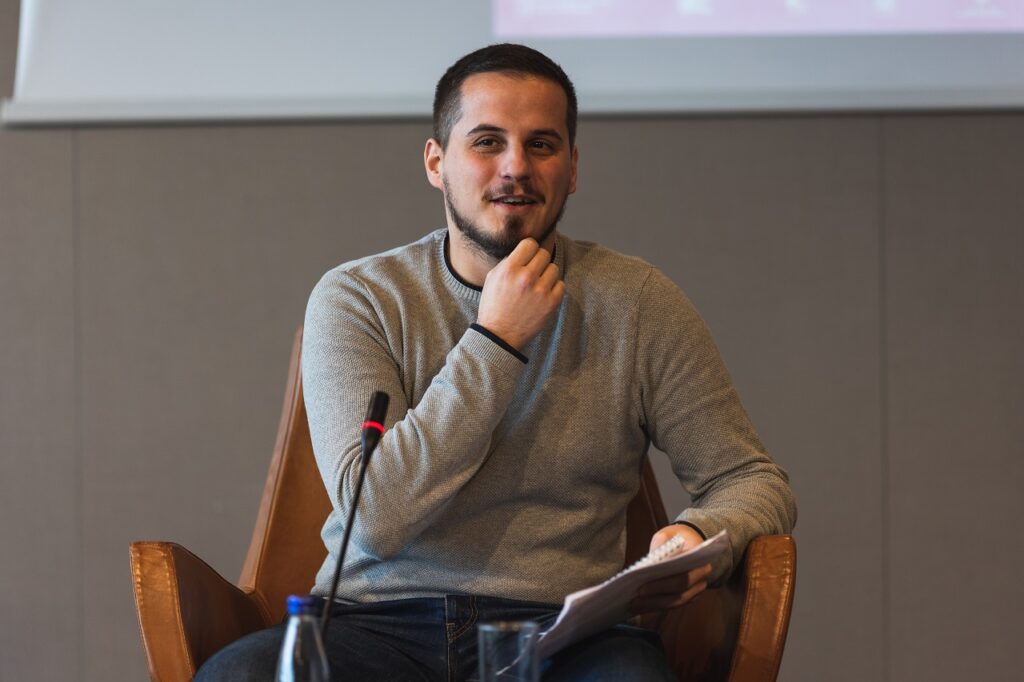
The participants also dealt with the problems of vulnerable and marginalized groups with the assessment that they were more exposed to discrimination, neglect and hate speech in the past period, and that this was not accompanied by adequate access to justice and the exercise of rights in administrative and court proceedings. “It is necessary to systematically recognize the services provided by NGOs, then to change the NGO funding model and form a special organizational unit at each ministry with the employment of people with expertise in the field of the project cycle“, reported the moderator of this group, Miloš Knežević, director of the Montenegrin LGBTIQ association Queer Montenegro. In further reviewing the problems of vulnerable and marginalized groups, among the priorities, he mentioned also the need to create strategies and action plans within the specified deadlines, because the implementation of the planned activities affects the users of the service. “The missing institutional memory slows down the licensing process, and frequent changes of employees block our work. Strategies are not implemented, and most of the work is done by the civil sector, which affects the lives of citizens. That is why it is necessary to simplify the system of obtaining permanent licenses with occasional checks and controls of organizations. This would build the sustainability of the service, but also single out organizations that work properly and with clearly defined groups,” he explained. Furthermore, the participants of this group are also of the opinion that it is important to use the correct terminology in all documents, but also to strengthen control factors in the media through the Media Law. Part of the recommendations referred to the need to re-establish the directorate for human and minority rights and for the rights of persons with disabilities.
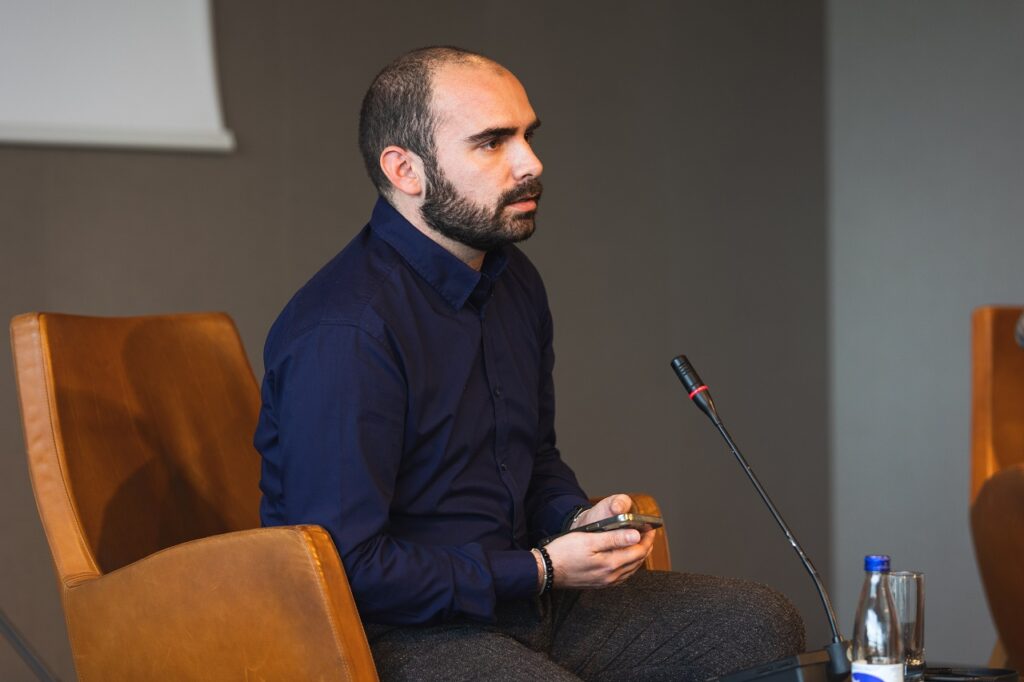
Ksenija Medenica, programme director of the Center for the Protection and Study of Birds (CZIP) and moderator of the group dealing with ecology and sustainable development, highlighted numerous problems identified in various aspects of this field, with key recommendations in the area of horizontal legislation; waste management; air quality; water quality; industrial pollution; nature protection; and climate change. “Progress in the field of ecology and sustainable development is extremely slow due to lengthy administrative processes combined with a lack of professional capacity and the absence of political will to solve key problems. Our most valuable areas have been managed without a plan and strategy for three years, which proves that very little work is being done in this area and that hardly anyone is trying to solve the problems,” stated Medenica. The recommendations of this group indicate that it is necessary to improve inspection supervision and intersectoral cooperation, use modern technology in controls, improve air and water quality monitoring mechanisms, and especially start monitoring sea water, but also insist on the application of European directives in this area and strengthen the capacities of local communities with the aim of hearing the voice of the local point of view. Although developed European countries work intensively on the adoption and application of laws on the restoration of nature, it was noted that in our country the opportunities for such changes are easily rejected, citing the case of the Ulcinj Salina, whose embankments were not repaired during 2022 due to the incompetence and lack of interest of the management despite the prepared project and provided funds. “And while in Montenegro, throwing waste into the river is a normal thing, poaching with electric generators in the national park is an integral part of tradition, and illegal cutting of forests is a completely common thing, it is clear that we are further away from EU principles and ecological standards,” she concluded.
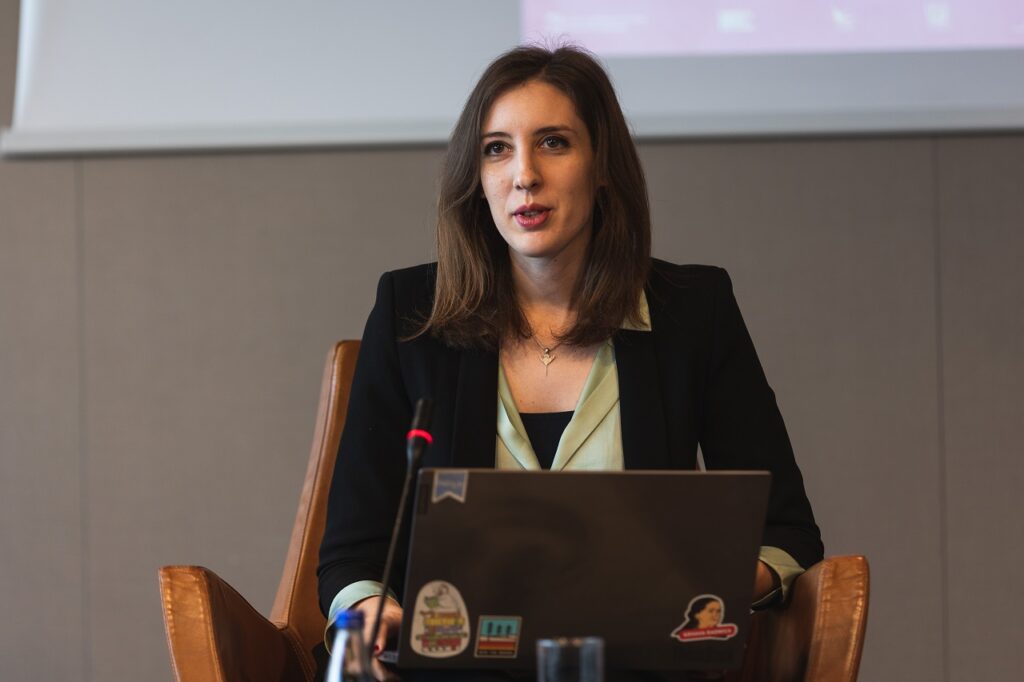
This year’s forum brought together around 65 participants who through dialogue, from their positions, reflected on the current situation and formulated recommendations in defined thematic areas for future joint advocacy for qualitative changes. The recommendations made during this meeting will be sent to competent institutions in Montenegro, as well as to international organizations and donors.
The discussion forum is one of the activities of the project “CSOs in Montenegro – from basic services to policy formulation-M’BASE”, which is implemented by the CCE in partnership with the Friedrich Ebert Stiftung (FES), the Center for the Protection and Study of Birds of Montenegro (CZIP) and the Politikon network, in cooperation with the Ministry of Public Administration and the Ministry of European Affairs. The project is implemented with the financial support of the European Union and co-financing by the Ministry of Public Administration.
Maja Marinović, Programme associate

